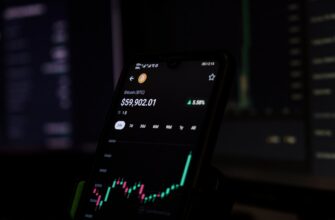- CBN Cryptocurrency Ban Update: Nigeria’s Regulatory Shift Explained
- The 2021 Ban: Understanding the Original Restrictions
- 2023-2024 Regulatory Updates: The CBN’s Policy Shift
- Impacts on Nigeria’s Crypto Ecosystem
- Positive Developments:
- Ongoing Challenges:
- Why the CBN Changed Its Stance
- Practical Guidance for Nigerian Crypto Users
- Future Outlook: Regulation Over Prohibition
- Frequently Asked Questions (FAQ)
- 1. Is cryptocurrency legal in Nigeria now?
- 2. Can I buy Bitcoin with my Nigerian bank account?
- 3. What triggered the CBN’s policy reversal?
- 4. Are crypto profits taxable in Nigeria?
- 5. How does this affect the eNaira?
- 6. Should I return to crypto trading in Nigeria?
CBN Cryptocurrency Ban Update: Nigeria’s Regulatory Shift Explained
Nigeria’s relationship with cryptocurrency has been turbulent since the Central Bank of Nigeria (CBN) imposed sweeping restrictions in February 2021. Fast forward to 2024, and significant updates signal a dramatic policy shift. This comprehensive guide unpacks the latest CBN cryptocurrency ban developments, analyzes their implications for traders and businesses, and explores what the future holds for digital assets in Africa’s largest economy. Stay informed with critical insights into Nigeria’s evolving crypto landscape.
The 2021 Ban: Understanding the Original Restrictions
In February 2021, the CBN shocked Nigeria’s burgeoning crypto community by directing all financial institutions to:
- Close accounts of individuals/entities transacting in cryptocurrencies
- Block cryptocurrency exchange transactions
- Prohibit crypto purchases with debit/credit cards
The CBN cited three primary concerns driving the ban:
- Financial Stability Risks: Cryptocurrency’s extreme volatility threatening Nigeria’s economy
- Illicit Activities: Potential for money laundering and terrorist financing
- Currency Control: Bypassing of foreign exchange regulations
2023-2024 Regulatory Updates: The CBN’s Policy Shift
In December 2023, the CBN issued a landmark circular titled “Guidelines on Operations of Bank Accounts for Virtual Assets Service Providers,” effectively easing restrictions. Key updates include:
- Licensed crypto exchanges can now open Nigerian bank accounts
- Banks permitted to facilitate crypto transactions under strict KYC rules
- Mandatory AML/CFT compliance for all virtual asset service providers
- Requirement for exchanges to register with Nigeria’s SEC
This reversal aligns with the Securities and Exchange Commission’s (SEC) 2022 framework recognizing crypto as regulated investments, signaling coordinated regulatory oversight.
Impacts on Nigeria’s Crypto Ecosystem
The policy shift creates both opportunities and challenges:
Positive Developments:
- Legitimization of crypto businesses after years of operating in gray markets
- Potential for institutional investment in blockchain projects
- Improved consumer protection through regulated exchanges
Ongoing Challenges:
- High compliance costs for exchanges due to stringent requirements
- Bank transaction limits on crypto-related accounts
- Taxation uncertainty for digital asset transactions
Why the CBN Changed Its Stance
Multiple factors drove this significant policy reversal:
- Market Reality: Nigeria ranked 2nd globally in crypto adoption despite the ban (Chainalysis 2023)
- eNaira Integration: Need to align policy with Nigeria’s CBDC development
- Economic Pressure: Naira devaluation increased demand for crypto as hedge
- Global Trends: Regulatory frameworks emerging worldwide (MiCA in EU, UAE’s VARA)
Practical Guidance for Nigerian Crypto Users
Under current regulations:
- ✅ Use only SEC-registered exchanges like Binance (with restrictions) or local platforms
- ✅ Maintain detailed transaction records for tax compliance
- ❌ Avoid peer-to-peer (P2P) trades exceeding regulatory limits
- ⚠️ Monitor bank policies – some still impose arbitrary restrictions
Future Outlook: Regulation Over Prohibition
Industry experts predict:
- Tighter KYC requirements for exchanges by Q3 2024
- Potential licensing for crypto custodial services
- Integration of blockchain technology in traditional finance
- Increased scrutiny of DeFi platforms
The CBN’s focus appears shifted toward creating a controlled environment rather than outright prohibition.
Frequently Asked Questions (FAQ)
1. Is cryptocurrency legal in Nigeria now?
While not “legal tender,” cryptocurrency is now regulated. The CBN permits licensed exchanges to operate through Nigerian banks under strict guidelines.
2. Can I buy Bitcoin with my Nigerian bank account?
Yes, through SEC-registered exchanges. However, banks may impose transaction limits and enhanced monitoring.
3. What triggered the CBN’s policy reversal?
Key factors include Nigeria’s persistent high crypto adoption rates, pressure from fintech stakeholders, and global regulatory trends favoring oversight over bans.
4. Are crypto profits taxable in Nigeria?
The FIRS hasn’t issued specific crypto tax guidelines yet. However, capital gains taxes likely apply. Consult a tax professional for compliance.
5. How does this affect the eNaira?
The updates position the eNaira as part of a broader digital asset ecosystem, potentially increasing its utility through interoperability with regulated cryptocurrencies.
6. Should I return to crypto trading in Nigeria?
Proceed with caution: Use only licensed platforms, understand transaction limits, and maintain records. Regulatory uncertainty remains.
Final Insight: Nigeria’s crypto journey reflects a global pattern – from resistance to regulated integration. While challenges persist, the 2024 framework offers a path toward legitimizing Africa’s most vibrant crypto market. Stakeholders should prioritize compliance while advocating for balanced regulations that foster innovation.








